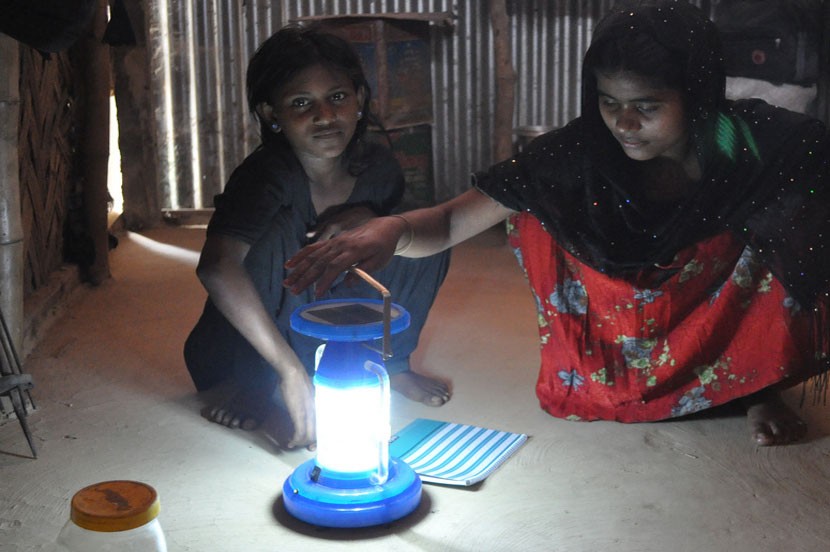
Solar lantern in use by a refugee woman and a girl. Photo: UNHCR/S. Nambu
In 2013 – Countries that switch from lamps, candles, flashlights and other traditional lighting systems to solar power can recover the costs in less than one year, the United Nations Environment Programme (UNEP) said today, highlighting new studies that show the development and climate benefits of ‘off-grid’ lighting.
“Replacing the world’s 670 million kerosene lamps with cleaner, safer solar-powered lighting represents a major opportunity to deliver across multiple fronts, from cuts in global carbon emissions, health risks from indoor air pollution, support for green technologies and the generation of green jobs,” UNEP Executive Director Achim Steiner said in a news release.
UNEP-led assessments of solar-power alternatives in 80 countries showed that the payback period in most countries is less than a year, depending on the cost of the LED [light-emitting diode] system and the local price of kerosene.
According to the findings, more than 1.3 billion people live without access to electric light worldwide and pay a total of $23 billion each year to fuel their kerosene lamps with the required 25 billion litres of kerosene.
If Nigeria, for example, replaced all of the kerosene, candles and batteries used annually for off-grid lighting, it could save over $1.4 billion annually or the equivalent of 17.3 million barrels of crude oil.
Meanwhile, in Kenya, transitioning out all fuel-based lighting for solar-powered LED systems, the costs would be repaid in only seven months, according to UNEP.
The switch would also have an impact on the environment. Fuel-based light sources in the country are responsible for over 2.3 million tons of carbon dioxide emissions per year.
Switching to solar power supports UN Secretary-General Ban Ki-moon’s Sustainable Energy for All initiative and its goal of achieving universal access to modern energy services by 2030.
In a message to UNEP’s Governing Council and Global Ministerial Environment Forum in Nairobi earlier this week, Mr. Ban called on countries to implement policies that protect the environment, stressing that this will also benefit their economic growth and prosperity.
“Investing in the environment and a green economy is not a cost but a sound insurance policy for the future we want,” he said.
Also today, UNEP announced that is collaborating with the Global Off-Grid Lighting Association (GOGLA) on a series of projects, including in West Africa where 76 per cent of the population lives without reliable access to electricity.
“Supporting both sustainable off-grid and on-grid lighting can bring about major financial savings in a short time, as well as additional educational, health and environmental benefits towards the achievement of the Millennium Development Goals,” Mr. Steiner said, referring to the set of anti-poverty targets world leaders have pledged to achieve by 2015.


